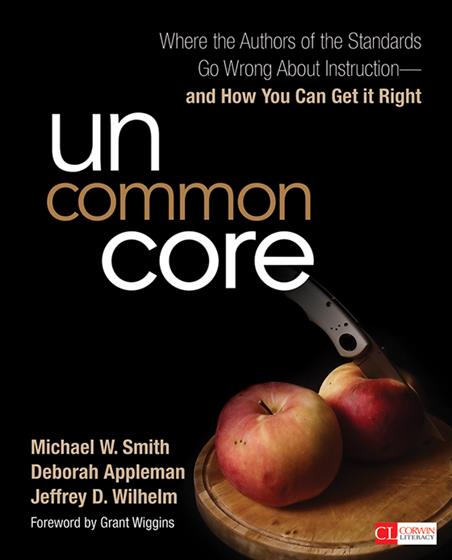Hands-on, Practical Guidance for Educators
From math,
literacy, equity, multilingual learners, and SEL, to assessment, school counseling,
and education leadership, our books are research-based and authored by experts
on topics most relevant to what educators are facing today.

Uncommon Core
Where the Authors of the Standards Go Wrong About Instruction-and How You Can Get It Right
Foreword by Grant Wiggins
Uncommon Core puts us on high-alert about some outright dangerous misunderstandings looming around so-called “standards-aligned” instruction, then shows us how to steer past them.
Product Details
- Grade Level: PreK-12
- ISBN: 9781483333526
- Published By: Corwin
- Series: Corwin Literacy
- Year: 2014
- Page Count: 224
- Publication date: April 15, 2014
Review Copies
This book is not available as a review copy.




